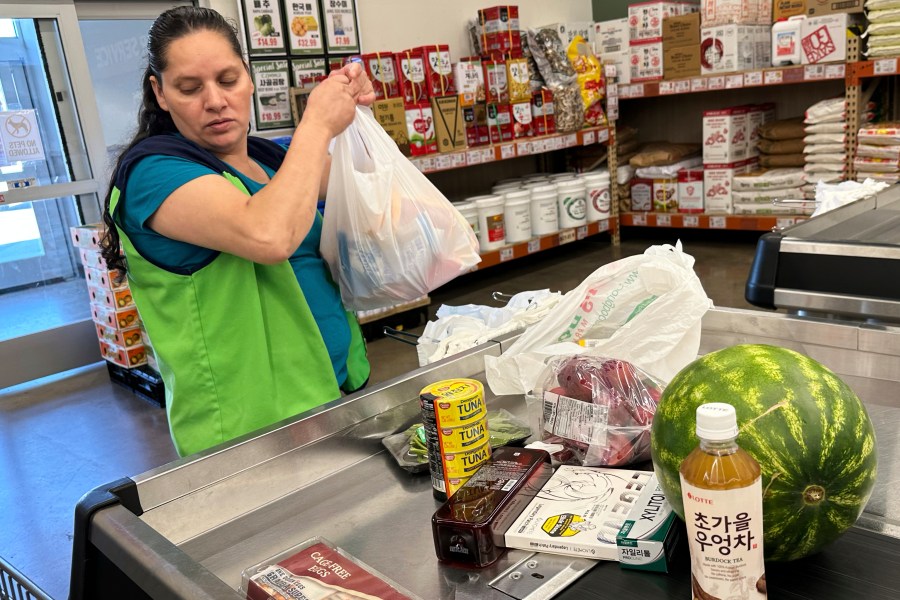HONOLULU (KHON2) — Rising tariffs and a shrinking farm labor force are pushing up the prices of produce and meat across the United States.
Shoppers across Hawaiʻi and the rest of the country are feeling it every time they visit the grocery store.
But careful planning and smart choices can help stretch every dollar. So, KHON2.com did a bit of searching and found some tips that will help you get the biggest bang for your buck.
1. Make a budget
Start with a clear plan. Write down what you need and how much you can spend before leaving home. A list keeps you focused and prevents last-minute splurges that add up at checkout.
2. Use credit cards wisely
Some credit cards give between 1.5% and 6% back on grocery purchases. That small percentage can make a big difference over time. Check which card offers the best rewards for supermarkets and use it only for those trips.
But remember that when you use cards like this, it’s important to buy only what you have the budget for. This way you can pay off the balance every month and enjoy the cashback rewards.
3. Take advantage of discounts
Sales and coupons can turn high prices into manageable ones. Many stores post digital coupons through their apps or websites. Joining free loyalty programs can also unlock extra savings. And with most apps, regular customers often get early notice of special deals.
4. Choose store brands
Store-brand products often match the quality of name brands at a lower price since those products are typically made by the national brand. You can switch just a few items or all of your items for the store brand which can cut your grocery bill significantly without sacrificing taste or quality.
5. Watch for clearance deals
Items close to expiration are often marked down sharply. These are safe to buy if you plan to cook or freeze them soon. It’s an easy way to save while keeping food out of the landfill.
6. Buy in bulk
Warehouse stores, like Costco and Sam’s Club, offer large quantities at lower unit prices. For ʻohana who go through a lot of groceries, bulk shopping can be a major money-saver.
But these stores are not only for large families. Even if you’re single or two to three people in a family, utilizing bulk can be a good way to store food and cut down on costs. Just make sure you have space to store everything and that it won’t spoil before you use it.
7. Best buy and expiration dates
A “Best By” or “Best If Used By” date tells you when a food will taste its best, not when it becomes unsafe. Foods are usually still okay to eat after this date if stored properly, though they might not taste as good. For example, things like cereal can get stale or crackers can lose their crunch.
An “Expiration” or “Use By” date is about safety. After this date, the food is not be safe to eat, especially for things like milk, eggs, meats (including deli meats) or baby formula. Always check food with your senses: look, smell and feel for signs of spoilage.
Click here for more food safety tips from the United States Department of Agriculture.
And remember that how you store food matters. Dry foods like pasta, rice and canned goods often last much longer than their “Best By” dates.
Copyright 2025 Nexstar Media, Inc. All rights reserved. This material may not be published, broadcast, rewritten, or redistributed.
For the latest news, weather, sports, and streaming video, head to KHON2.
